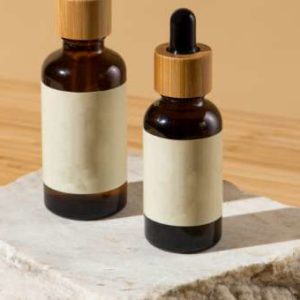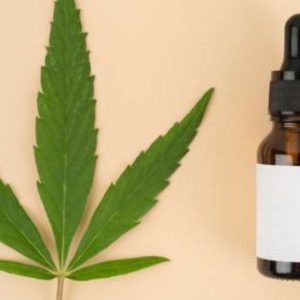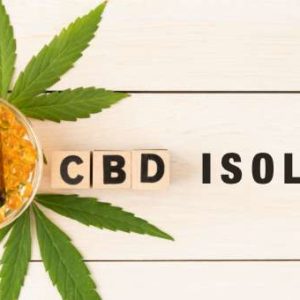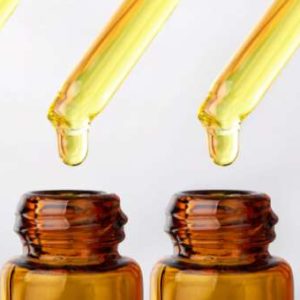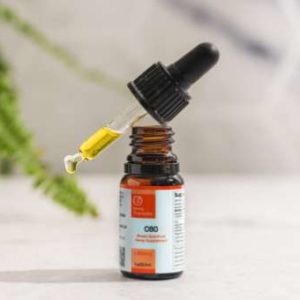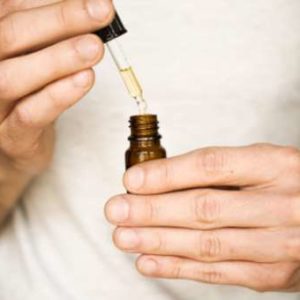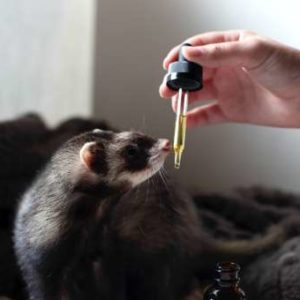Comparing the Three Types of CBD: Full Spectrum vs Broad Spectrum vs Isolate
- admin
- General
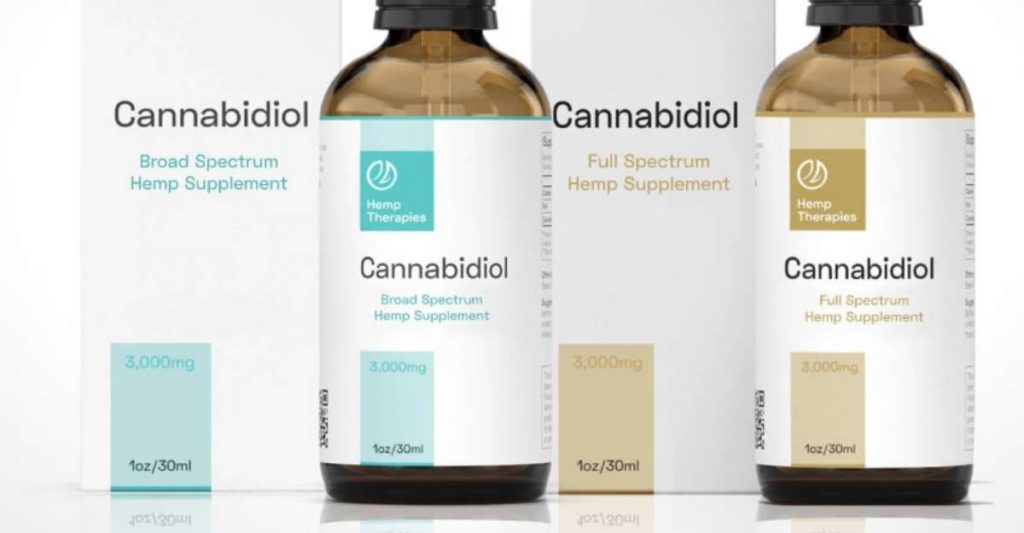
CBD oil has become hugely popular around the world thanks to its beneficial qualities and effectiveness. CBD can be recommended and prescribed to patients suffering from a broad range of conditions. In total, there are three types of CBD: CBD isolate, broad spectrum CBD, and full spectrum CBD oil.
When shopping for CBD oil, many people will come across terms like ‘full spectrum’ and ‘broad spectrum’. Leading CBD Oil provider, Hemp Therapies, for example, offers both broad spectrum and full spectrum products, but what do these terms actually mean?
A lot of people find themselves asking that exact question. They’re not sure what the specifics of full and broad-spectrum oils are, as well as the specific qualities of CBD isolate and what makes these three products so different and unique.
When it comes to full spectrum vs broad spectrum vs isolate CBD, many people aren’t sure which one they should buy to meet their needs. This understandable uncertainty is why we decided to write this expert guide. Below, we will examine all three types of CBD, looking at what makes each one unique, what positive effects they can have, and which one you should buy to meet your needs.
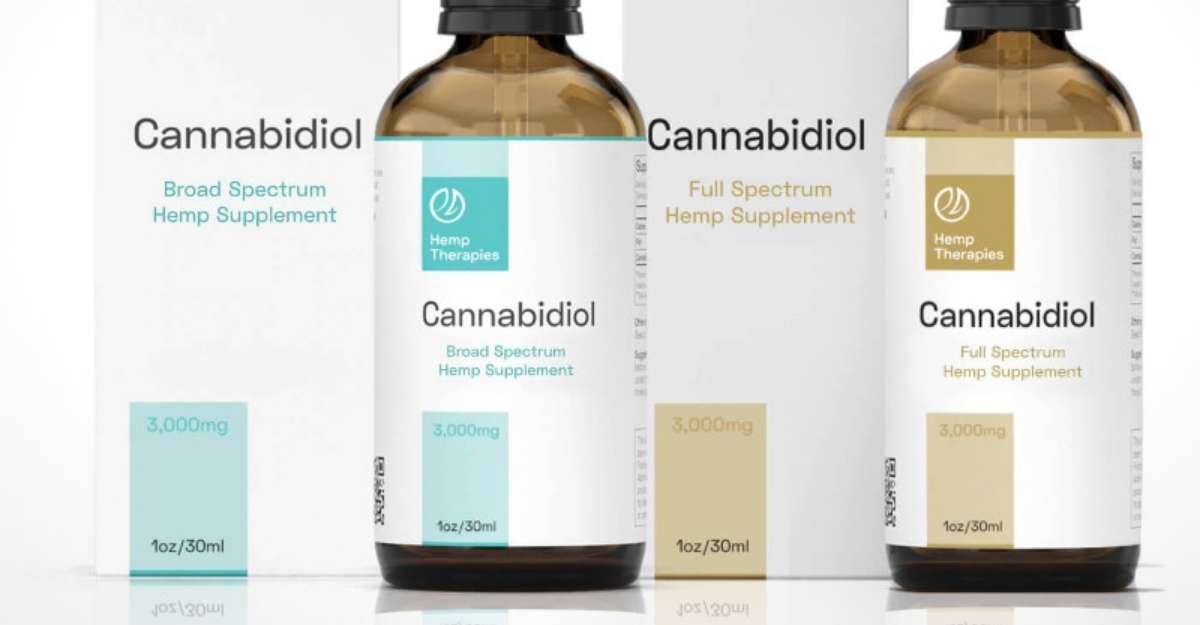
What Is CBD Oil?
Before we take a closer look at the specifics of full spectrum CBD oil and so on, it’s important to understand what CBD oil actually is.
CBD oil is sometimes referred to as cannabis oil or hemp oil, is an extract derived from industrial hemp plants. Its key ingredient is CBD, which is short for cannabidiol. Cannabidiol is a cannabinoid found in the hemp plant, known as a cannabinoid.
It’s one of many cannabinoids, with the family also including THC, CBN, and CGN. These unique natural compounds can trigger a range of beneficial effects on the human body.
Leading CBD oil suppliers, like Hemp Therapies, extract CBD and other key cannabinoids and natural extracts from hemp plants through various methods and then dilute them into a carrier oil, such as MCT oil, resulting in CBD oil tinctures.
CBD oil can then be dropped directly under the tongue, inhaled, used in creams and ointments, or even eaten in edible products. Once it enters the body, it interacts with the endocannabinoid system (ECS) to assist with various bodily functions and sensations.
In humans and animals alike, CBD can be highly beneficial, with many studies, reports, and clinical trials suggesting potential benefits.
What Is Full Spectrum CBD?
There are believed to be over 100 different cannabinoids in hemp plants. Together with other compounds like terpenes, they form a spectrum of key ingredients, and, as the name implies, full spectrum CBD oil contains the entire spectrum of those ingredients.
Essentially, full spectrum CBD includes all of the different naturally occurring cannabinoids and compounds found in the hemp plant. This includes CBD, CBG, CBN, THC, and so on, as well as terpenes too, which help to give hemp its distinctive aroma and flavor.
Full Spectrum CBD Benefits
So, what are some of the advantages of choosing full spectrum CBD oil? Well, many experts actually believe that this is the most effective form of CBD oil you can buy.
This is because of something called the ‘entourage effect’. This is a scientific phenomenon that researchers have observed when studying full spectrum CBD, and it basically means that all of the different cannabinoids and terpenes work together to produce rapid, real effects throughout the body.
Thanks to the powerful entourage effect, full spectrum CBD benefits include fast-action, efficiency, and tangible results.
What Is Broad Spectrum CBD?
Broad spectrum CBD has plenty in common with full spectrum CBD, as it contains a “broad spectrum” of cannabinoids like CBG and CBN, along with useful terpenes.
The key difference with broad spectrum vs full spectrum CBD is that it doesn’t contain any THC. THC is the cannabinoid best-known for its psychoactive properties and its ability to produce a ‘high’ sensation.
In large quantities, THC can cause moderate side effects, and even in small doses, it may cause people to fail workplace drug tests. This is why broad spectrum CBD oil may be preferred to full spectrum CBD in some situations or locations.
Broad Spectrum CBD Benefits
The key benefit of broad-spectrum CBD oil is that it has no THC. THC isn’t a bad cannabinoid and can offer a lot of great benefits, but it does come with some problems. It can cause people to fail workplace drug tests, it may lead to some slight sensitive reactions, and, legally speaking, it can be quite strictly controlled based on location.
This is why broad-spectrum oil, as offered by Hemp Therapies, can be quite appealing to people in certain jobs or locations. It allows them to enjoy the effects of high-quality CBD oil without any of the concerns associated with THC.
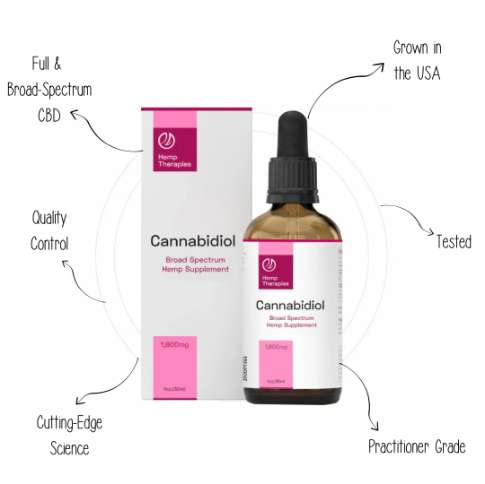
What Is CBD Isolate?
The third and final type of CBD is CBD isolate. As the name implies, this type of CBD involves nothing but 100% pure, isolated cannabidiol, without any other cannabinoids or terpenes included in the mixture.
CBD isolate usually comes in the form of an odorless, flavorless, white powder, but it can come in an oil form too. It’s a good choice for people who simply want to give CBD a try or only need CBD to treat their conditions without the necessity of other cannabinoids.
CBD Isolate Benefits
CBD isolate also has its share of benefits. It is regarded as the weakest form of CBD, lacking in potency and efficiency when compared to full and broad-spectrum alternatives, but it has the advantage of being perfect for people who only want to take CBD, without anything else.
It has no THC and since it only includes one major cannabinoid, there are fewer risks of allergic reactions or sensitivities to other cannabinoids and terpenes. And since it’s flavorless and odorless, it may be easier for many people to consume.
Final Thoughts on Isolate vs Broad Spectrum vs Full Spectrum CBD
When it comes to CBD isolate vs full spectrum vs broad spectrum, there’s no ‘winner’, exactly. None of these options can be classed as the best, as they all have different uses.
The main difference between them is how they’re extracted and which cannabinoids they are present in. Isolate is pure CBD, broad spectrum includes other cannabinoids but no THC, and full spectrum basically gives you a full dose of everything the hemp plant has to offer with low THC.
Full spectrum is the most effective and ideal for patients but broad spectrum can be a safe compromise, while CBD isolate has its ideal uses too.
Each variation has its pros and cons, and it’s important for anyone thinking about using CBD to be aware of the differences and understand exactly what are the three different types of CBD before buying any CBD products of their own.
FAQs About the Three Types of CBD
What is broad spectrum CBD oil?
Broad spectrum CBD oil contains a wide range of cannabinoids and terpenes. However, it doesn’t contain any THC.
How to use spectrum CBD oil?
You can use full and broad-spectrum oils like those offered by Hemp Therapies in different ways. They can be dropped below the tongue, vaporized, or mixed into drinks and foods.
What is CBD isolate?
CBD isolate is a pure form of 100% CBD. It contains no other cannabinoids and is usually served in powder form or as a tincture.
How to use CBD isolate?
CBD isolate powder can be held under the tongue until it dissolves. It may also be used in recipes or diluted into oil.




